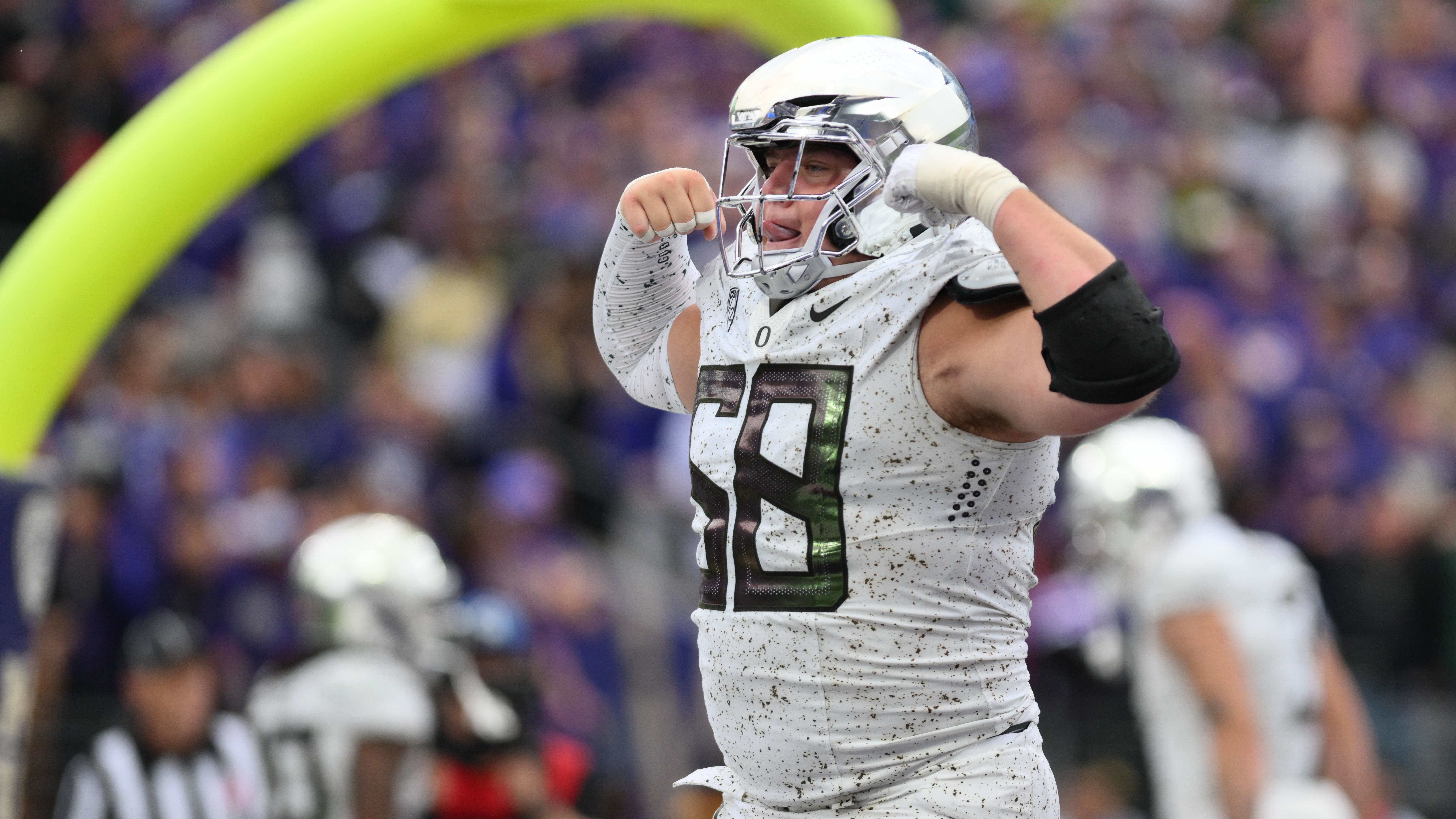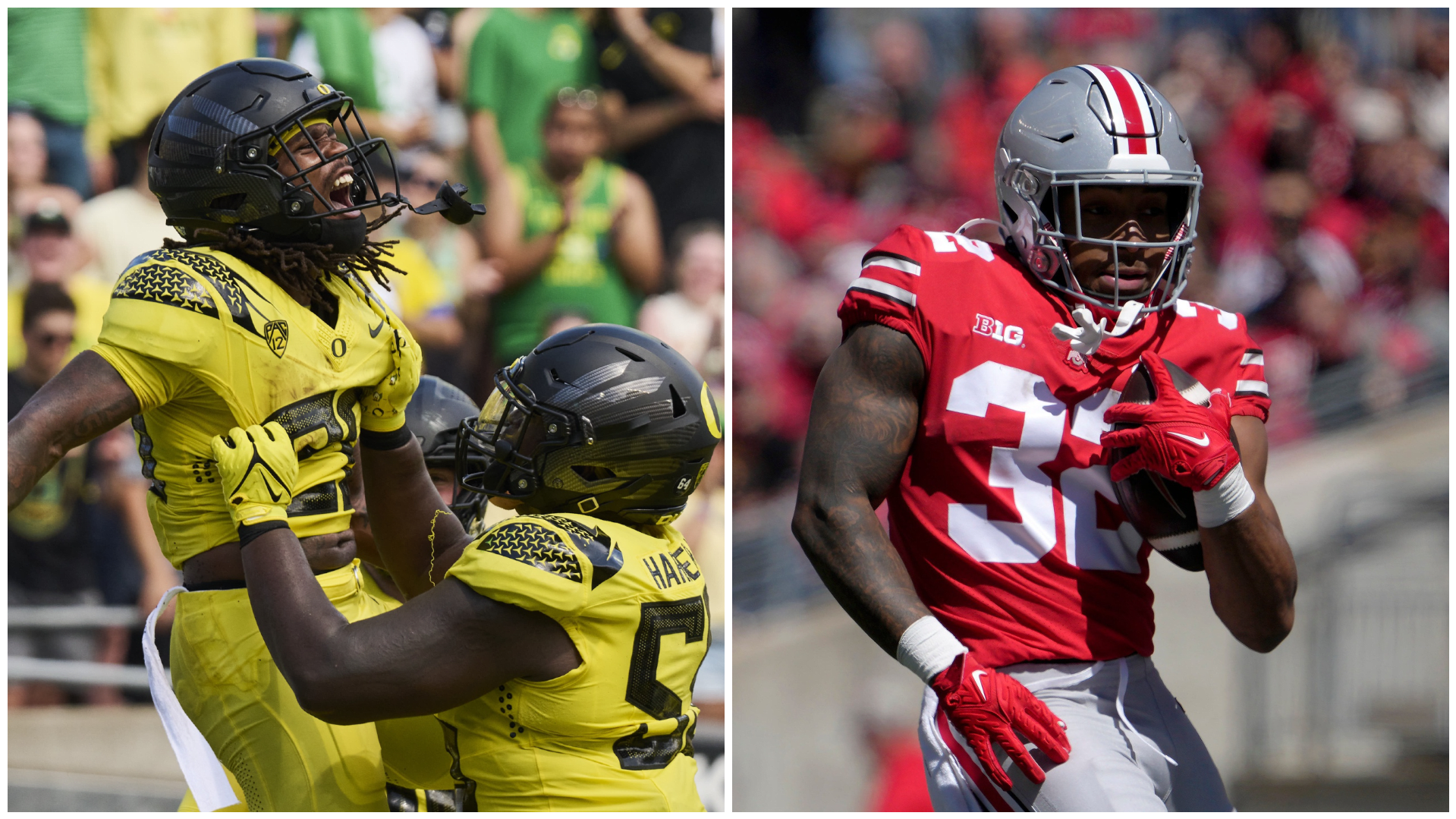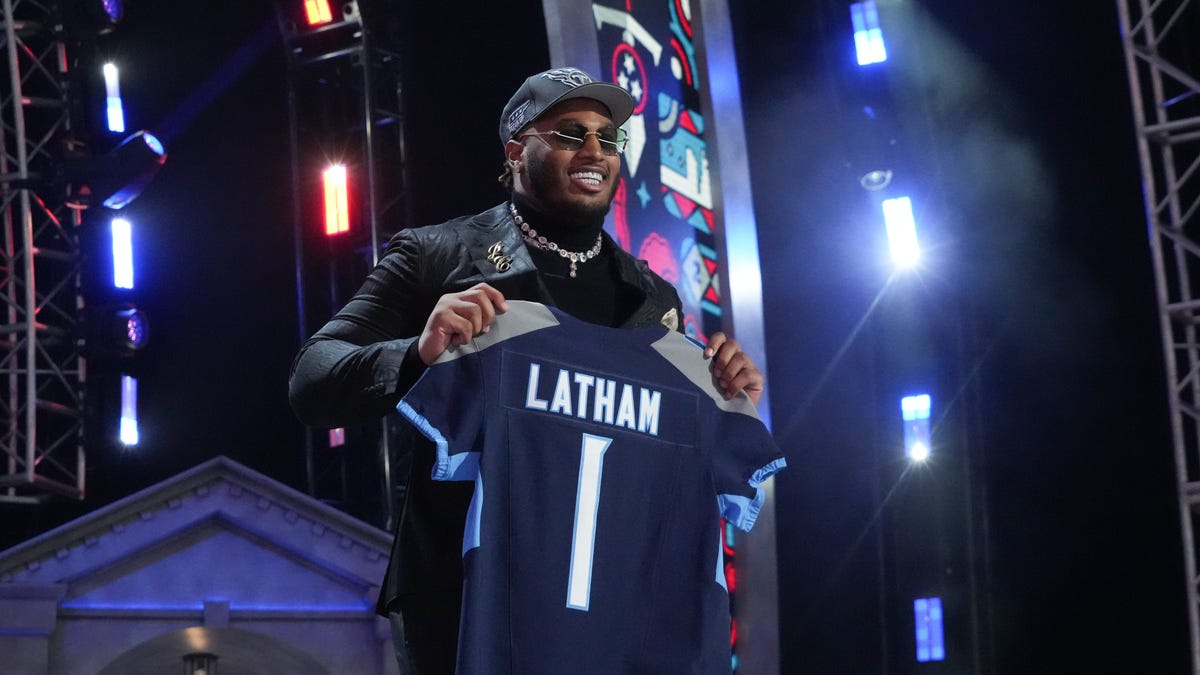Oregon
Oregon secretary of state candidates cite similar goals but different strategies to restore trust in office

The frontrunners to become Oregon’s next secretary of state, Treasurer Tobias Read and state Sen. James Manning, are running on broadly similar platforms, saying their top priority is to restore voters’ trust in an office whose last elected leader resigned amid scandal.
The two Democrats each point to professional experience they say proves they’re right for the job: Read cites his what he says has been steady, reliable leadership of a complex state agency, the treasury, while Manning points to his decades of service in the U.S. Army, where his work as an inspector general aligned with the audit function of the secretary of state.
Both candidates said they would work to protect Oregon’s vote by mail system and ensure the office conducts factual and data-driven audits of state agencies. The winner of the May Democratic primary will be heavily favored heading into the fall general election. Oregon voters have only elected a Republican to serve as secretary of state once since 1985, and Democrats currently hold every statewide elected office.
The election will take place just over a year after former Secretary of State Shemia Fagan resigned following Willamette Week’s revelation that she had taken a $10,000 a month consulting gig with an affiliate of embattled marijuana company La Mota while her office was auditing the cannabis industry.
Secretary of State LaVonne Griffin-Valade, whom Gov. Tina Kotek appointed to replace Fagan, is not running.
The secretary of state oversees elections, serves as the state’s chief auditor and heads the Oregon Corporation Division. They also sit on the Oregon State Land Board and chair the Oregon Sustainability Board. The elected agency head is first in line to become governor should the state’s top officeholder step down or die.
In making their cases to voters, Read has stressed his methodical leadership style while Manning has emphasized his commitment to integrity and public trust.
Read represented Beaverton in the Oregon House from 2007 until becoming state treasurer in 2017, rising to the powerful positions of speaker pro tempore and co-chair of the budget committee before announcing his candidacy for statewide office. He said his experience overseeing the state treasury qualifies him to take the reins as secretary of state. If elected, Read said he would explore programs to improve voter access and select which programs and agencies to audit based on data, not politics.
“A key part of my administration will be bringing the stability and performance that I’ve led as treasurer to the Secretary of State’s Office,” Read wrote in a response to an Oregonian/OregonLive questionnaire.
Read said he recognizes that he is not a flashy candidate but said his understated leadership style would be an asset for an office that has been in turmoil. He previously worked for Nike in product development and marketing roles from 2004 until 2012. During his time in the Legislature, he championed a bill that funded full-day kindergarten. In 2022, Read ran for governor but lost to Kotek by a huge margin in the Democratic primary.
Manning, a U.S. Army veteran and state senator since his appointment in late 2016, said one of his priorities in office would be to conduct thorough audits of agencies to address equity-related issues, such as the disproportionate hiring of men and a lack of racial diversity.
The secretary of state leads the Oregon Audits Division, which performs regular audits of state agencies and programs to measure their performance and effectiveness.
“A reporter once asked me, ‘You do know the secretary of state doesn’t pay a lot?’” Manning wrote in response to The Oregonian/OregonLive’s questionnaire. “I reminded them that serving 24 years active duty in the U.S. Army didn’t pay a lot either. I do it for the love of country and because it is public service.”
State Sen. James Manning, candidate to become Oregon’s next secretary of state, says his military career and legislative experience has prepared him to take on the statewide office.Courtesy of James Manning campaign
Manning said his experience as an assistant inspector general in the Army for three years and as the state Senate’s president pro tempore since 2021 have given him valuable experience. Manning retired from the Army in 2007 and moved to Eugene, where he served on nonprofit boards and school and local commissions, including six years as a member of the Eugene police commission, before joining the Legislature. He also served on Oregon’s Commission on Black Affairs from 2013 to 2017.
Read has brought in more than triple the campaign contributions of Manning.
Manning has raised nearly $200,000 and spent about $183,000. He’s received $20,000 from Stuart Barr, the owner of Eugene-based manufacturing company Industrial Finishes; $12,000 from advocacy organization Imagine Black; and $5,000 apiece from the political arm of the Native American Youth and Family Center, Oregon AFSCME, manufacturing company Greenhill Reload, real estate company ATR Services and political strategist Johnell Bell.
Read has brought in roughly $632,000 and spent about $234,000. The Democratic Lieutenant Governors Association gave him $26,250. Five other groups or individuals contributed $25,000: an Oregon electricians union; Gideon Yu, co-owner of the San Francisco 49ers and former CFO of Facebook; Eugene-based construction equipment company The Pape Group; Springboard Group, a Lake Oswego-based nonprofit that focuses on Yamhill County economic well-being and gives widely to political candidates; and Avamere Health Services, a senior health care and nursing home provider.
Dozens of lawmakers and notable Oregon politicians have endorsed a candidate in the race.
Manning has received endorsements from 20 Democratic state lawmakers, Oregon Planned Parenthood, the Oregon Sierra Club and the Oregon chapters of the Service Employees International Union and the American Federation of State, County and Municipal Employees.
Read has received endorsements from 10 Democratic state lawmakers, former governors Barbara Roberts, Ted Kulongoski and John Kitzhaber, U.S. Reps. Suzanne Bonamici, Val Hoyle and Andrea Salinas, the Oregon Education Association and former Secretaries of State Jeanne Atkins and Phil Keisling.
Former attorney James Crary, retired attorney and former securities analyst Dave Stauffer and retired electrical engineer Paul Wells are also vying for the Democratic nomination. In response to a questionnaire from The Oregonian/OregonLive, Crary said he would focus on data and software audits to minimize agencies’ security risks and establish an electronic candidate forum, which voters could access to directly contact political candidates. If elected, Stauffer said he would work to fight misinformation and take his role of chief auditor seriously. Wells declined to respond to the candidate questionnaire.
The three Republicans competing for their party’s bid are state Sen. Dennis Linthicum, who cannot seek reelection to the Senate this year because of his participation in a Republican-led walkout of the Senate in 2023, small business owner Brent Barker and business analyst Tim McCloud. McCloud has not held office and unsuccessfully ran for governor in 2022. Barker also has not held office and unsuccessfully ran for labor commissioner in 2022.
All Republican candidates said they would attempt to end Oregon’s vote-by-mail system, if elected. Linthicum and McCloud said they believe voter fraud has impacted state and federal election results in recent years. There is no evidence of widespread voter fraud at the state or federal level.
Plans to oversee audits, fight misinformation
If elected, Manning said he would lead the office by example and reduce corruption by setting an office-wide expectation of transparency. He said he would demand audits of state agencies with known problems, such as the Oregon Employment Department, which continues to struggle with long wait times and slow claims processing amid a transition to a new computer system.
Read said he would focus on protecting Oregonians’ right to vote and providing sufficient support to staff to ensure that audits are carefully selected and done with the right intentions. He said audits should not be driven “by a particular agenda, but by efficiency and effectiveness.”
State Treasurer Tobias Read said his experience overseeing the state treasury qualifies him to take the reins as secretary of state.Courtesy of Tobias Read campaign

One major task for the next secretary of state will be implementing historic limits on political contributions that lawmakers approved earlier this year. The new law calls for the Secretary of State’s Office to create a comprehensive dashboard to track campaign contributions and overhaul Orestar, Oregon’s online campaign finance reporting and disclosure system. Griffin-Valade told lawmakers earlier this year that the office will need more staff and money to get the job done.
Both Manning and Read said they support the desire of voters to limit political contributions and would ensure the bill is successfully carried out. Manning said he would seek long-term funding to support the overhaul of Orestar and “look to the some 36 states that have implemented [campaign finance reform] and propose best practices in regards to administration and guardrails to ensure bad actors are reigned in.”
Read said his experience rolling out complicated laws at the state treasury has prepared him to take on such a major task. Read has overseen the implementation of programs such as retirement-oriented OregonSaves, a system he advocated for while in the Legislature, and Oregon’s unclaimed property program.
“I will immediately roll up my sleeves, assess the capacity of the office and develop plans for implementation. My team and I know how to do this,” Read wrote. “I’m confident that with the appropriate budget and staffing, we will ensure the on-time rollout of a new transparent, publicly-accessible way for Oregonians to view campaign finance data.”
As the state’s chief elections officer, Manning said he would work to expand voters’ access to the ballot and protect Oregon’s voting system, but he did not outline specific strategies to do so. In the Legislature, he introduced or supported several bills to enhance voter access, such as a bill that died in a legislative committee this year that would have automatically registered college students to vote upon their enrollment.
“Oregon boasts the highest turnout in the nation yet we still have thousands of eligible students who remain unregistered as they are slipping through our … automatic voter registration systems,” Manning said.
If elected, Manning said he would conduct listening sessions at county election offices around the state to discuss ways to protect Oregon’s voting system and combat misinformation.
To improve Oregon’s voting system, Read said he would explore programs to increase voters’ confidence, such as establishing a statewide program that would text voters when their ballots are received and their votes counted and a program that would allow voters to see ballot-counting firsthand.
“Over the past six months, I have met with 24 of Oregon’s 36 county clerks to hear in part about strategies they have used to reach more voters, including satellite voting centers, increased translation services, ballot notification and outreach to rural voters in accessible locations,” Read said.
To combat misinformation, both Read and Manning said they would enhance transparency in the state’s voting system and invest in safety protocols for election workers. Read said he would do that “by not being afraid to stand up to misinformation campaigns and proving my commitment to transparency. I would also add that the safety of our election workers are under increasing threats, and I will be aggressive in protecting them.”
Manning said he would fight misinformation “through public service announcements and operating transparently in the office of secretary of state. … I will ensure investments are made in civics and in security, training and information delivery to and from our elections offices across our state.”
Oregon’s secretary of state has often taken on the additional task of redrawing the state’s congressional and legislative district boundaries after decennial census results come in. Similar to many other states, Oregon allows lawmakers to decide changes to its district boundaries, which they last redrew in 2021. However, lawmakers have only twice in the last century been able to approve new district boundaries, otherwise leaving the job to the secretary of state.
Good government groups have long advocated for an independent redistricting commission, arguing that Democrats as the legislative majority in 2021 redrew congressional districts in a way that gave them an unfair advantage, known as gerrymandering. A proposed ballot measure to create an independent redistricting commission was tabled earlier this year.
Read said he is open to the idea of establishing an independent commission, but he pointed out that independent panels of judges have consistently upheld redrawn boundaries decided by the Legislature or former secretary of states. He said, “I am not confident that any one system — an independent commission among them — represents a magic bullet.”
Manning said he likes the current system because lawmakers are fully accountable to voters and represent Oregon’s population better than an independent commission would.
“An unintended consequence of a so-called ‘independent commission’ appointed by lawmakers or the executive branch may be a way of removing accountability,” Manning said. “In a representative democracy, I find it appropriate that legislators are directly accountable to the people they represent.”
— Carlos Fuentes covers state politics and government. Reach him at 503-221-5386 or cfuentes@oregonian.com.
Our journalism needs your support. Subscribe today to OregonLive.com.

Oregon
“Made In A Lab” For Las Vegas Raiders

Oregon football fans will miss center Jackson Powers-Johnson. “JPJ” anchored the best offensive line in college football for two-straight seasons, protecting former quarterback Bo Nix, while bringing positivity and tenacity to the locker room.
The highest-drafted center in Oregon football history, Powers-Johnson was drafted by the Las Vegas Raiders with the No. 44 pick.
Overwhelmingly, the Las Vegas Raiders fan base is thrilled with the new addition, as the plan is for JPJ to start at right guard as a rookie.
“I don’t see any way he is not starting week one at right guard,” Hondo Carpenter, beat reporter for Las Vegas Raiders SI said in an exclusive podcast. “This is an old school Raider. This is a kid that would play with a leather helmet if they let him. Raider Nation is jacked up, this is one of their own.”
“This is like a guy that was made in the lab for (the Las Vegas Raiders),” Carpenter continued.
Oct 14, 2023; Seattle, Washington, USA; Oregon Ducks offensive lineman Jackson Powers-Johnson (58)
Steven Bisig-USA TODAY Sports
JPJ and the 2024 Raiders rookie class brings a wave of fresh air to a franchise already energized by the hiring of new head coach Antonio Pierce. A former NFL linebacker, Pierce started as Las Vegas’ linebackers coach in 2022. As interim coach last season, Pierce captivated the locker room with his tenacious leadership style and captivated the fanbase with his personality.
“It feels like the Raiders are back to being the Raiders. It’s almost like for the last 20 years they have wandered in the wilderness, trying to find an identity that they had lost. Along comes Antonio Pierce, who grew up a Raider, is a Raider, personifies the Raiders…” Carpenter said.
“It’s why JPJ just fits. He is their kind of guy: violent, nasty, mean. That is what the head coach says he wants and that is JPJ.”
Powers-Johnson has already played in Allegiant Stadium during the 2023 PAC-12 Championship against the Washington Huskies. He hopes to experience more wins in the new NFL stadium.
Known for his intense competitiveness and tough demeanor on the field, Powers-Johnson has a sense of humor for the ages.
Jackson Powers-Johnson left a distinguished legacy at the University of Oregon, setting milestones as the first Duck and Pac-12 player to win the Rimington Trophy, awarded to the nation’s best center. His accomplishments include being named a unanimous All-American, with first-team honors from the AFCA, Associated Press, FWAA, Sporting News, and Walter Camp.
Powers-Johnson anchored an Oregon offensive line that led the nation with just five sacks allowed in 2023. He led all FBS centers in overall (84.3) and run-blocking (85.2) grade by Pro Football Focus in 2023, while ranking second in pass-blocking grade (90.6). He allowed just one pressure and zero sacks in 471 pass-blocking opportunities.
Oregon
Ex-FSU Football Defensive Lineman Transferring to Oregon State Football

The spring transfer portal is officially closed, but players who entered while the portal was open are still able to find their next destinations and take their time in doing so. One player soon to find their next home is a former Florida State defensive end.
Josh Griffis, who has spent time with three different programs at various levels since transferring from Florida State a few years ago, will be continuing his college career at Oregon State. He announced the news on social media on Saturday evening.
READ MORE: Former FSU Stars Keon Coleman, Trey Benson, Tatum Bethune, and Renardo Green Get Their NFL Draft Calls
Griffis, a former three-star recruit and Florida State defensive end, left the Seminoles in 2021. He played briefly for Garden City Community College before joining Deion Sanders at Jackson State. He appeared in six games for the Tigers, totaling five tackles, 1.5 tackles for loss, 1.5 sacks and one quarterback hurry.
After the season, Coach Prime took his talents to Colorado — where he’s been heavily involved in the news cycle since — leaving Griffis and many other former Jackson State players in the transfer portal. This was after Griffis spent time in JUCO after being dismissed from Florida State.
The former Seminole then transferred to Tarleton State, where he finished with 13 total tackles, nine solo tackles, five sacks and three forced fumbles during his 2023 college football campaign.
Now headed to Oregon State, Griffis is headed to a unique situation. The program has been left high and dry after the Pac-12 dissolved, with its members dispersing across the Big 12 and Big Ten. Now, with just two programs remaining in the conference, Oregon State has an arrangement with the Mountain West to fill out their 2024 college football schedule.
Griffis is technically joining a power conference, though the Pac-12 is a thing of the past and they’re playing a very weak schedule compared to the Power Four — involving the Big 12, Big Ten, ACC and SEC. The former Seminole has had a very unique college football career path.
READ MORE: FSU AD Michael Alford Possibly Hints At Big 10 Move During Chicago Boosters Event
Stick with NoleGameday for more coverage of Florida State football throughout the offseason.
Follow NoleGameday on Twitter, Facebook, Instagram, and TikTok
Oregon
Ohio State Buckeyes or Oregon Ducks?

The Big Ten Conference is loaded with excellent running backs with a chance to electrify in the 2024 football season. Talent in this conference includes a dynamic duo, new faces and breakout stars. Ranking the top-three running back rooms:
1. Ohio State Buckeyes
It’s no secret that Ohio State does a great job bringing in some of the best talent in the nation and the running back position is no exception. Heading into 2024, the Buckeyes have arguably the best two-headed running back monster in college football with senior TreVeyon Henderson and Ole Miss transfer Quinshon Judkins.
Henderson has had some difficulty staying on the field over the course of his career but he’s absolutely not lacking talent. In his lone healthy season as a freshman in 2021, Henderson racked up 1,248 rushing yards on a remarkable 6.8 yards per carry.
Quinshon Judkins is the flashy new piece in the backfield as he brings his talents over from Ole Miss where he averaged 1,363 rushing yards on almost exactly five yards per carry in two seasons for the Rebels. More of a power runner, Judkins brings the thunder to Henderson’s lightning and rounds out what should be widely considered the best running back group in the Big Ten, if not the country.
2. Oregon Ducks
Depth is the name of the game for Oregon’s running back group this season. Spearheaded by junior Jordan James, the backfield features several different types of runners.
James is the most explosive of the group, averaging an astounding 7.1 yards per carry for the Ducks in 2023. Behind him is powerhouse senior Noah Whittington who comes into 2024 off a leg injury that cost him most of last season after starting red-hot with 7.3 yards per carry through Oregon’s first four games.
Behind these two is Jay Harris, a Division Two transfer from Northwest Missouri State who has garnered rave reviews from coaches and media alike in his first spring in Eugene.
3. Penn State Nittany Lions
Some would be tempted to place Michigan’s backfield in the No. 3spot but that mostly factors in last season. After the Wolverines lost star Blake Corum to the NFL Draft, Penn State returns the next-most impressive group in the realigned Big Ten with Nicholas Singleton and Kaytron Allen.
Singleton and Allen split carries last season for the Nittany Lions and both will be back after impressive 2023 seasons. Allen accrued 902 rushing yards in 13 games last year while Singleton contributed 752 of his own. With another year to develop, these two figure to headline one of the fiercest backfields in the Big Ten.
The Big Ten is known for its physical play and although there are other good backfields in the conference, these three should be among the most dangerous heading into 2024.
-

 World1 week ago
World1 week agoEU Parliament leaders recall term's highs and lows at last sitting
-

 Movie Reviews1 week ago
Movie Reviews1 week agoAbigail Movie Review: When pirouettes turn perilous
-

 Politics1 week ago
Politics1 week agoGOP lawmakers demand major donors pull funding from Columbia over 'antisemitic incidents'
-

 World1 week ago
World1 week agoHamas ‘serious’ about captives’ release but not without Gaza ceasefire
-

 Sports1 week ago
Sports1 week agoWhy drafting a successful NFL quarterback remains 'an inexact science'
-

 Tennessee1 week ago
Tennessee1 week agoHow to buy JC Latham’s Tennessee Titans jersey after 2024 NFL Draft selection
-

 Politics1 week ago
Politics1 week agoColumbia University’s policy-making senate votes for resolution calling to investigate school’s leadership
-

 Politics6 days ago
Politics6 days agoHouse Republicans brace for spring legislative sprint with one less GOP vote

















